What to Know About Learning Arabic in Dubai
Read on to find out more about cultural etiquette, what to wear, and other tips associated with learning a language in Dubai.
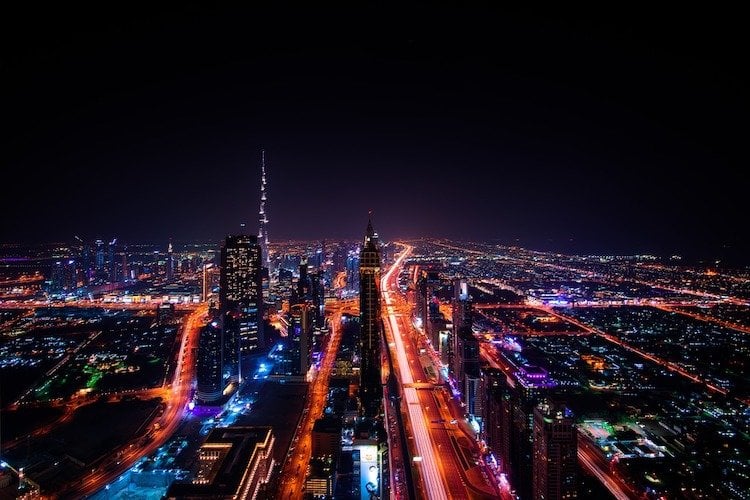
At a time when the need for cultural exchange, open-mindedness, and a willingness to understand societies, politics, and cultures other than our own is greater than ever, Dubai is becoming a popular choice for students who want to learn about the Middle East. One of the best ways to experience true cultural immersion, of course, is to learn a language where it’s widely spoken, so many students choose to learn Arabic in Dubai.
It’s worth noting that the peculiarities and complexities of the Middle East are not restricted to or represented by a single country within its vast geographical area. As such, the experience of learning to speak Arabic can vary widely depending on where you do this. Whether it’s in a city where tradition influences everyday life such as Cairo, one where the society is very liberal such as Beirut, or one that has found a comfortable, if hard to digest at first, balance between the two, such as Dubai -– the Middle East is a dynamic region, and your experiences within it will likely be equally dynamic.
"Dubai as a city never ceases to amaze me ... it is constantly changing." -- Bryan Adams
For someone who has just moved to learn Arabic in Dubai, the city of superlatives -- as it’s often called -- can seem like it’s chock-full of peculiar and confusing contrasts. On one hand, you see the locals in traditional attire, the men in spotless white kanduras and the women covered from head to toe in black abayas, some adorned with Swarovski gems. On the other, you see the bronzed bare backs and tanned legs of Western women, not just at the beach, but also in plush restaurants and busy shopping malls.
On weekends, while the predominant expat population frequents pubs, bars, beach clubs, and boozy brunches, the Emiratis are spotted at various cultural events, adventure meet-ups, art and design exhibitions, shopping malls, cinemas, and top-notch restaurants.
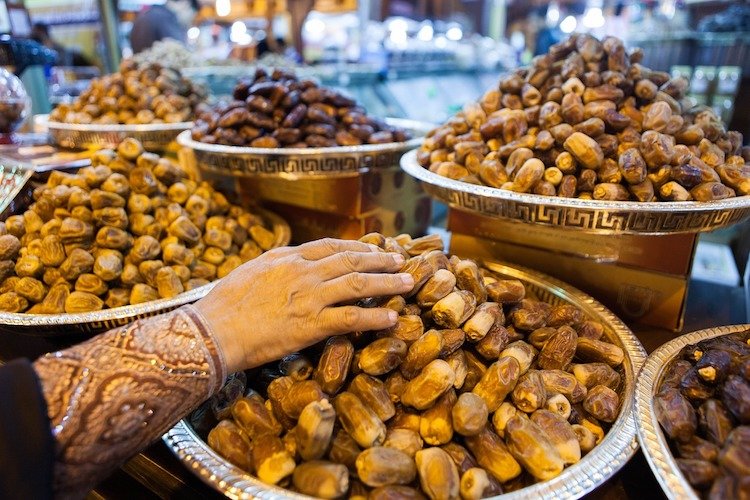
The city isn’t just home to record-breaking skyscrapers, glamorous supercars, seven star hotels, manmade islands, and opulent theme parks, it’s also home to souks where the aromas of spices invite visitors in, old neighborhoods that can feel like a small town in India, and backstreets where retired Emirati men sit on wooden stools playing cards into the wee hours of the morning.
So you might find yourself asking, “Is this, then, the real Middle East?” The question, in essence, is reflective of the narrow definition that is largely accepted of a region thanks to widespread media reportage that often fails to take into account the bigger picture.
Perhaps, a better question to ask is, “Is this also the Middle East?” The answer, simply put, is, “Yes.”
Related: What You Need to Know Before You Learn Arabic Abroad
Learning Arabic in Dubai -- Where Everyone Speaks English
One of the reasons why Dubai is a popular choice among expats moving abroad, in addition to high tax-free salaries, safety and stability, and a high standard of living, is the fact that everyone speaks English. Everyone from the Emirati officer at the Customer Service desk of a government entity to the grocer who delivers bread to your apartment at 12:00am speaks English fluently. As such, many expats spend years in Dubai without ever learning Arabic, for lack of a pressing need.
This does not mean that Arabic isn’t also widely spoken in the city. For Arabic language learners who’re willing to step out of the expat bubble and interact with locals (who are friendly, welcoming, and happy to help and encourage you as you attempt to learn their language), there are plenty of opportunities to practice your Arabic on a daily basis. This is a definite advantage over learning in your own city or online: this helps you improve your Arabic fluency through practical methods and also provides an opportunity to learn about Emirati society and culture and their evolution in modern times.
It isn’t just the Emiratis that you can practice with. Dubai is home to Arabs from countries like Oman, Jordan, Egypt, Syria, Tunisia, Lebanon, Qatar, and others working and language learning in the city who can teach you a little more about their local dialects.
As is the case everywhere, speaking the local language or trying to learn is something that is greatly appreciated by the locals and will earn you their respect. Many Emiratis feel that expats can be lazy about learning Arabic and wonder why they fail to do so even after living in Dubai for as long as a decade.
Living and Learning Arabic in Dubai: How To Dress
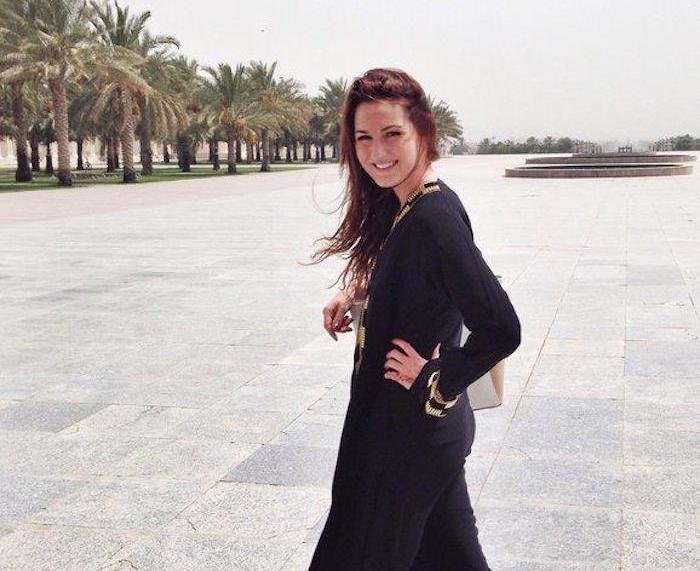
While living in Dubai, it’s important to remember that this extremely tolerant city is in fact, located in an Islamic country. It’s best to be respectful of the culture and to dress modestly in all public areas.
While spaghetti straps, tank tops, extremely short shorts, and skimpy dresses are not in line with culturally appropriate dressing, it’s not uncommon to see expats dressed exactly as they would be back in their own countries. This is a reckless display of cultural insensitivity when it’s in places that are frequented by Emirati families such as shopping malls, the metro or restaurants. In such places, it can be useful to carry a jacket or a scarf to cover up.
As a general guide, women should wear clothing that at least reaches just above the knees, doesn’t show cleavage, and covers the shoulders. This does not apply to bars, pubs, nightclubs, or beach parties where you’re most likely surrounded by people who wouldn’t be offended by dressing in a liberal fashion. While beachwear is acceptable on public and private hotel-owned beaches and beach clubs in Dubai, it shouldn’t be worn elsewhere (such as on your way to the beach).
Living & Learning in Arabic Dubai: Social and Cultural Etiquette

Dubai is a progressive city and given that the majority of its population is comprised of expats, most of the rules of social etiquette from the West also apply here, especially in formal and business situations. But it helps to be aware of certain aspects of local culture because you will be interacting with Emiratis on a day-to-day basis.
When meeting a local of the opposite sex, it’s respectful to wait for them to offer their hand before you reach out for a handshake. Reaching out for a hug, kissing, and air kissing are major faux pas and never acceptable. Never photograph locals without permission, even in public spaces. This is considered intrusive and an invasion of privacy.
Public displays of affection are taboo in Dubai and any act that is considered offensive can lead to imprisonment and fines.
When you move to learn Arabic in Dubai, you should also get acquainted with appropriate behavior during Ramadan, the holy month of fasting for Muslims. During this time, Muslims abstain from eating and drinking from sunrise to sunset and refrain from addictive habits like smoking in order to appreciate life and find balance.
As a non-Muslim, you’re prohibited to eat, drink, smoke, or play loud music in public from sunrise to sunset and you have to be mindful even of simple acts like drinking water or chewing gum, doing them in private spaces. Work timings are shorter across the country during Ramadan. The emphasis on modest dressing is stronger during this month. The general spirit is one of charity and benevolence. Around sunset, the fast is broken at a meal called Iftar and you will most likely receive invitations to a few from your Muslim friends. It’s polite to accept and join.
Living & Learning Arabic in Dubai: General Safety
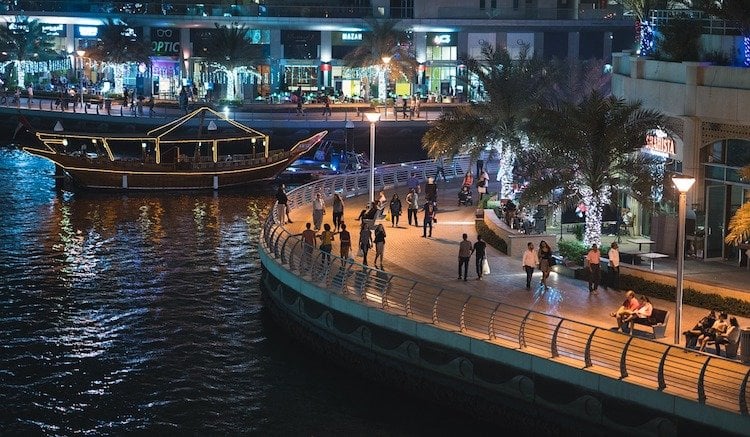
The UAE is politically stable and Dubai is one of the safest cities in the Middle East. There are strict laws and sentences for crimes, whether they’re petty or organized, and this makes life in the city very safe. You could walk down a lonely street late at night and wouldn’t have to look over your shoulder in fear of mugging or bag snatching. The chances of being pick-pocketed in crowded areas or on the metro are slim, if not non-existent.
Many expats who move to Dubai, at first, find it hard to believe that it is not unusual to leave your purse, bag, or even car unattended for a few minutes. If you were to forget your wallet or phone in a taxi, you would most likely have it returned to you by the driver.
The city is also very safe for women. In Islamic culture, women are treated with the greatest respect and this is something that women living in the city experience on a daily basis. Crimes against women are rare and subject to strict punishment. It’s just as safe for women to move about freely by themselves in all areas of the city as it is for men.
That said, it’s important for both men and women to be aware of local laws to ensure that their actions are within the framework of what is considered legal in Dubai, especially when it comes to things like consumption of alcohol or relationships outside of marriage, which are viewed differently in Dubai than they are in the West.
Living & Learning Arabic in Dubai: Cost of Living
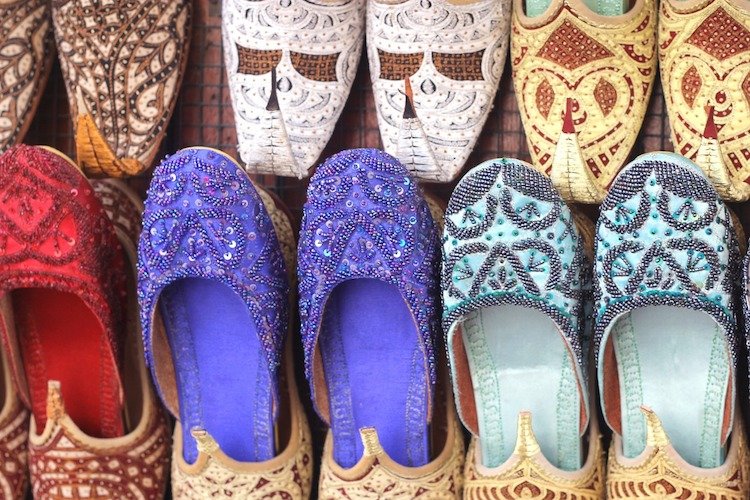
Dubai offers a high standard of living but expenses can quickly add up, especially for students who do not work part-time. Rental apartments can seem obnoxiously expensive and living the lavish Dubai lifestyle can blow your budget even before you realize. But with a little research, planning, and strict budgeting, it is possible to live in Dubai within your means. Small tweaks and lifestyle habits can go a long way in making your time in Dubai an affordable language learning experience.
Taxis in Dubai are expensive and a better, more affordable, and often faster alternative is the metro that connects major areas of the city. While grocery shopping, it’s worth checking out discounted deals and offers at budget chains like Carrefour rather than other, more expensive supermarkets.
There are a large number of websites and apps that offers discounts and 2 for 1 deals on dining, entertainment, and leisure activities such as Groupon, Cobone, and The Entertainer and you can easily save money by taking advantage of these. Dubai also hosts an increasing number of cultural events, concerts, exhibitions, and film screenings that are free to enter.
Preparation Helps You Keep Your Expectations Realistic
Many expats who move to Dubai with the hopes of learning Arabic, but without really understanding the intricacies of a Dubai lifestyle, can find themselves living in a bubble and slowly burn out with the fast-paced ways of city life and the high cost of living or complain about the lack of culture. Doing a good amount of research and planning ahead for your time in Dubai helps you keep your expectations realistic, adjust your finances, and gives you the chance to explore the city and its culture with an open mind, making your Arabic learning experience more rounded.
Dubai is one of the most innovative and cosmopolitan cities in the world and living and learning a language here gives you the opportunity to meet people not only from around the Middle East but also from far-flung corners of the planet. Learning Arabic in DUbai will add a new skill set to your portfolio and be a crash course in expat life in a truly modern and multicultural city.
